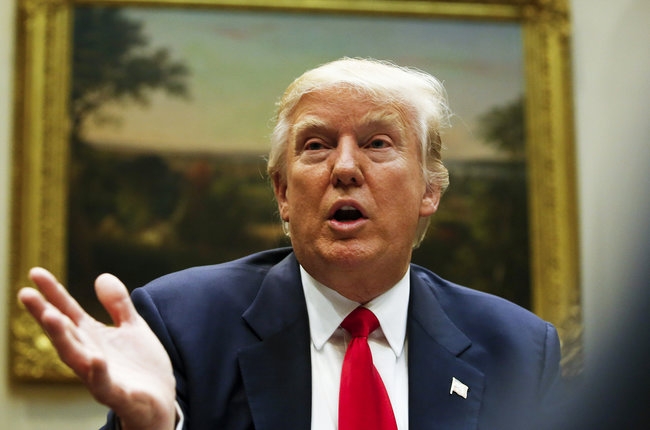Since Jan. 20, many of those in the music industry have spend a considerable amount of time objecting to, disparaging, and even protesting an administration that could actually be good for business. Although many creators and music executives supported President Barack Obama and voted for Hillary Clinton, most of them also believed that Obama pushed policies that favored technology companies at the expense of artists and entertainment companies. And while President Trump never addressed any music-related issues during his campaign, music executives believed that anyone who built a business by licensing his name -- protected by trademark for some commercial uses -- would feel strongly about protecting their rights as well.
So how are Trump's reviews after his first 100 days in office?
"I think compared to the last administration, which seemed to have turned a deaf ear, what we're seeing is an openness to those concerns," Congressman Doug Collins (R-Ga.) tells Billboard. "We've had some talks with White House staff and we've been very pleased."
The stakes are high. Trump took office at an unusually active time in the copyright world. Under the Obama Administration, the Department of Justice pushed a policy of making ASCAP and BMI engage in "100 percent licensing," which songwriters and publishers believe will drive down licensing income. The effort to make terrestrial radio pay labels are artists to use recordings is once again gaining steam, and the Fair Play, Fair Pay Act from 2015 was just re-introduced by a bipartisan group of legislators led by Reps. Jerry Nadler (D-NY) and Marsha Blackburn (R-TN). Most important of all, Congress has begun the long-awaited copyright reform process -- the first since 1976.
"In terms of music, Trump's first 100 days is encouraging -- with an asterisk," Daryl Friedman, chief advocacy and industry relations officer for The Recording Academy, tells Billboard. The asterisk is Trump's proposal to eliminate the National Endowment for the Arts -- "but there's been bipartisan pushback on that," Friedman says.
On March 1, the Office of the U.S. Trade Representative posted the President's 2017 Trade Policy Agenda, which included as a key objective "ensuring that U.S. owners of intellectual property (IP) have a full and fair opportunity to use and profit from their IP." Weeks ago, President Trump nominated a new "IP Czar," Vishal J. Amin. And some DC insiders believe that Trump's pick for the top antirust enforcer at the Justice Department, Makan Delrahim, could reverse the agency's previous policy on the ASCAP and BMI consent decrees.
So far, though, the real action has been in Congress. The hottest issue has been who will get to choose the new Register of Copyrights, the country's top copyright official, who will play an important role in many issues important to the music business -- especially on the publishing side. Until now, the Register has been chosen by the Librarian of Congress. But after Carla Hayden, the new Librarian of Congress, removed Register Maria Pallante from her job in October, musicians and executives have become concerned over who will step into the job.
After a March 1 meeting where several members of Congress asked Hayden to wait before appointing a new Register, Hayden said she intended to move forward anyway, and Congressmen Bob Goodlatte (R-Va.) and John Conyers (D-Mich.) introduced a bill to make the job a presidential appointee. The bill -- the Register of Copyrights Selection and Accountability Act of 2017 -- passed the House Wednesday (April 26).
The debate over how the Register of Copyrights should be selected has generally been framed in exalted terms: Should the government official who helps set policy for restricting access to works operate within a library that seeks to expand that access? But the fight is really about who will get the job -- and whether they'll be more sympathetic to rightsholders, or to the technology business. An equivalent bill has yet to be introduced in the Senate, but President Trump is expected to sign it if it reaches his desk.
Perhaps more importantly, according to several sources, the relatively broad and bipartisan support for making the Register a presidential appointee bodes well for more complex legislation -- which is likely to be introduced soon, since Goodlatte wants to move the reform process ahead during the two years he has left as House Judiciary Committee Chairman. "The bill gives some new authority to the President and it had some support from Democrats, so it shows that copyright is a bipartisan issue," Friedman says.
The irony that the music business might get so much help from an administration it doesn't much care for isn't lost on anyone. "I have a lot of contacts in New York and L.A. and we probably don't agree on much," says Collins, who supports copyright partly because he sees creators, not inaccurately, as small businesses. "But on this issue there's an understanding."








